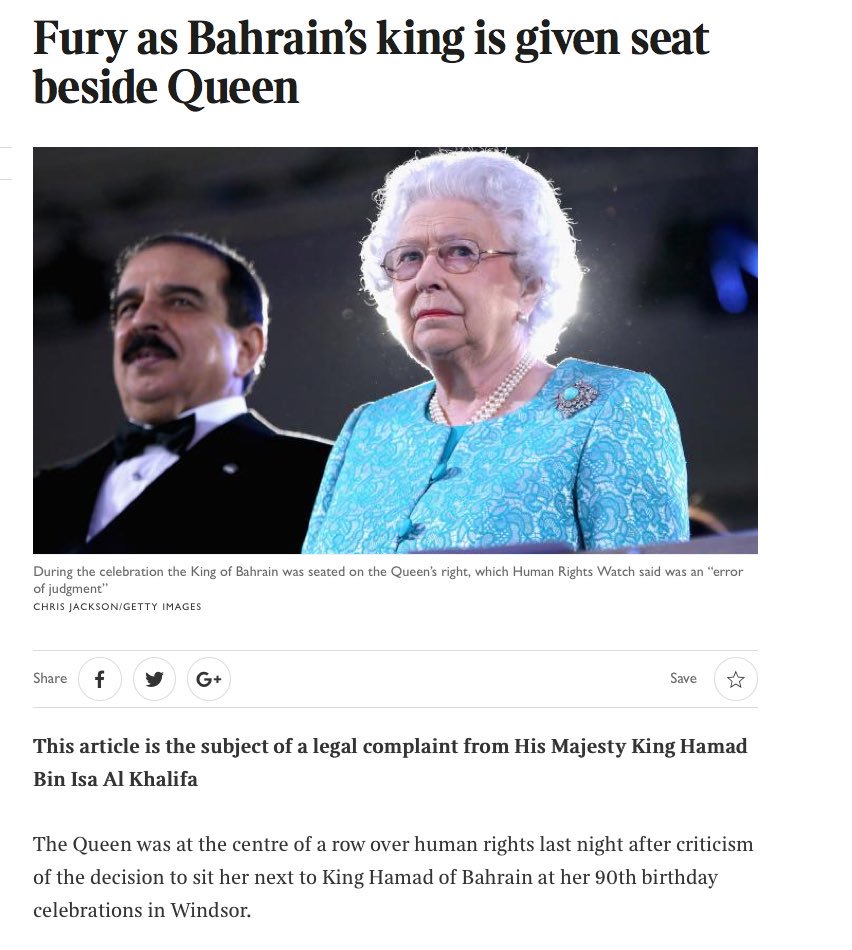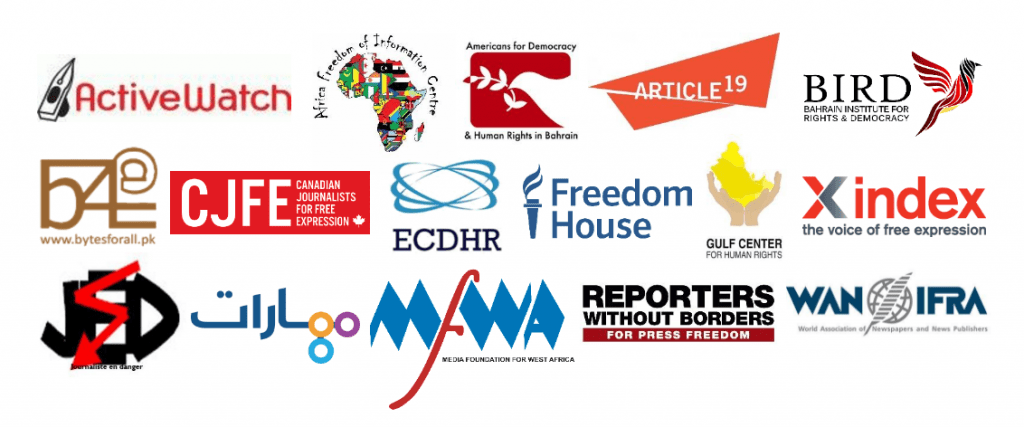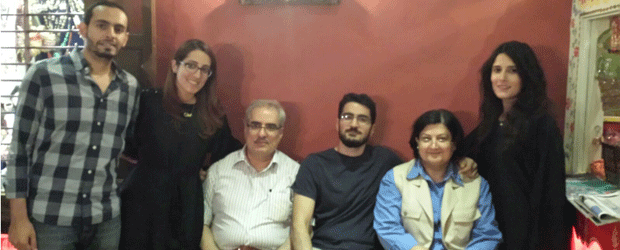Index relies entirely on the support of donors and readers to do its work.
Help us keep amplifying censored voices today.
[vc_row][vc_column][vc_column_text]
The Royal Windsor Horse Show should sever ties with the Kingdom of Bahrain, say five rights groups today in letters to Buckingham Palace, event organisers HPower Group and principal partner Land Rover. King Hamad, who local Bahraini media report to have departed from Bahrain, is expected to arrive in the UK today.
The human rights groups state: “The Royal Windsor Horse Show and the monarchy risk reputational damage by maintaining close relations with the Kingdom of Bahrain and its head of state, and the continued association only serves to undermine the work of human rights organisations such as ours who are seeking a peaceful and reformative cessation of human rights abuses in Bahrain.”
The Royal Windsor Horse Show, which hosted a live-broadcast celebration for the Queen’s 90th birthday last year, has regularly hosted the King of Bahrain and his son Prince Nasser for the past several years. The King was spotted in the royal box, sat next to the Queen, during her birthday celebrations, and Bahrain sponsors at least four events at the annual horse show, including an endurance race and the Kingdom of Bahrain Stakes for the King’s Cup.
King Hamad’s high profile presence at the Queen’s birthday sparked controversy. The Times reported “fury” over the King’s seat, and was subjected to a legal complaint based on its reporting. The Independent and Daily Mail also reported on the King’s attendance. Buckingham Palace told the Independent that the King was there “at their behest”, while horse show organisers HPower said “he was there because he supports the horse show.”
The Horse Show has also sparked controversy for the attendance of King Hamad’s son, Prince Nasser, with one outlet last year reporting“Bahraini prince accused of torture expected to attend Royal Windsor Horse Show.” The prince, whose diplomatic immunity to the United Kingdom was quashed in 2014 over torture allegations, is a regular attendee and participant in the races.
The letter, signed by NGOs including the Bahrain Institute for Rights and Democracy, Reprieve and Index on Censorship, calls for the horse show to sever its ties with Bahrain until stronger ethical commitments are in place. The campaigners point to the deteriorating human rights situation in Bahrain, where the King signed death warrants for the execution of torture victims in January, and where civilians are currently being tried by military courts following fresh constitutional amendments. There are currently thirteen individuals on death row in Bahrain, six of them sentenced in March 2017. Two men, Mohammad Ramadan and Husain Moosa, allege torture and unfair trial, and have exhausted all legal appeals. They risk imminent execution.
Commenting, Director of Reprieve Maya Foa said: “Make no mistake – visits like this gift the Bahraini government a royal cloak of acceptability, while the Kingdom mercilessly executes political prisoners and uses torture to extract ‘confessions’. Theresa May wants stronger UK-Gulf relations, but we must not help the Bahrainis to whitewash their appalling abuses. Instead of drafting in the Queen to cosy up to King Hamad, the UK must urgently protest Bahrain’s use of torture and executions to silence opponents.”
To Land Rover, whose partnership with the horse show will soon be up for renewal, the rights groups ask that they do “not renew its partnership with the Royal Windsor Horse Show unless human rights commitments are adopted, including the exclusion of states engaged in human rights abuses from sponsoring the event and the prohibition of athletes with allegations of torture from participating in the event, and the severing of current ties with the Kingdom of Bahrain.”
Sayed Alwadaei, who protested King Hamad’s attendance of the horse show in 2013, was stripped of his citizenship two years later. Since March 2017, his mother-in-law and brother-in-law have been arrested, tortured and unfairly tried. Their prosecution appears to be solely to punish Sayed Alwadaei for his protests and human rights campaigning. Human Rights Watch described it as a “cowardly attempt to break the resolve of an activist by attacking his family.”
In 2015, Sayed penned an open letter to the Queen asking that she does not meet with Bahrain’s King, writing, “I strongly believe that my citizenship was stripped on account of my legitimate and peaceful protest at the horse show two years ago.” But the close relationship between the monarchies continued: during the 2016 Royal Windsor Horse Show, King Hamad was seated by the Queen’s side during her 90th birthday celebrations at the event.
Bahrain directly sponsors four events in the event schedule. Friday 12 May sees the Royal Windsor Endurance supported by the Kingdom of Bahrain, the Manama Two Phase jumping competition and the Bahrain Pearl Stakes race. Prince Nasser and his brother Prince Khalid have both participated in the Endurance race in previous years. On Saturday, the Kingdom of Bahrain Stakes for the King’s Cup will be held. The winner of the race is awarded the cup jointly by King Hamad and Queen Elizabeth.
Further Info: Royal Windsor Horse Show: Bahrain Sponsored Events
Royal Windsor Endurance (CEI2*) supported by The Kingdom of Bahrain
Friday 12 May, 07.00
Manama Two Phase (CSI5*)
12 May 2017, 12:20
Bahrain Pearl Stakes (CSI5* )
Friday 12 May, 15.25
Kingdom of Bahrain Stakes for The King’s Cup (CS15*)
Saturday 13 May, 13.45[/vc_column_text][/vc_column][/vc_row][vc_row][vc_column][vc_basic_grid post_type=”post” max_items=”12″ style=”load-more” items_per_page=”4″ element_width=”6″ grid_id=”vc_gid:1494521931684-2d010369-a057-6″ taxonomies=”716″][/vc_column][/vc_row]
[vc_row][vc_column][vc_column_text]
To: Sheikh Hamad bin Isa Al Khalifa
King of Bahrain
CC: Hon. Zeid Ra’ad Zeid al-Hussein
High Commissioner for Human Rights
Ms. Frederica Mogherini
High Representative of the European Union for Foreign Affairs and Security Policy
Mr. Sigmar Gabriel
Vice-Chancellor and Foreign Minister of the Federal Republic of Germany
Mr. Rex W. Tillerson
United States Secretary of State
The Right Honorable Boris Johnson
Foreign & Commonwealth Office of the United Kingdom
Mr. Jean-Marc Ayrault
Minister of Foreign Affairs of France
King Hamad,
We, the undersigned, express our deep concern with the government of Bahrain’s continued targeting of journalists, which further restricts free press and expression in the country. On 23 April 2017, the court of appeals will hold another hearing for Sayed Ahmed Salman al-Mousawi, an internationally-renowned photographer, after he was arrested more than three years ago for alleged terrorist activities. The government’s repeated harassment of al-Mousawi and other journalists highlight the ongoing censorship and restrictions on free press and expression in Bahrain.
Sayed Ahmed Salman al-Mousawi is a 29-year-old freelance photographer who has won 169 international photography prizes—a number of which he even won while in detention. He is a member of FIAP, PSA, UPI and Qatif photos.
Authorities arrested al-Mousawi, along with his brother Sayed Mohammed, on 10 February 2014 from their home in Duraz. The plain-clothes masked policemen did not present any arrest warrant and confiscated his cameras and electronic devices. After holding al-Mousawi for six days, officials transferred him to Dry Dock prison. Security forces then took him to the Criminal Investigations Directorate (CID) for another six days where they tortured him “cruelly without mercy,” as he later told his father. Security officers hung him on a door four times, electrocuted him, and did not allow him to sit for four days. They stripped him naked, beat him and sexually assaulted him. No independent investigation into his torture allegations has ever been conducted.
Al-Mousawi spent over nine months in detention without official charges against him. At his first trial on 24 December 2014, the prosecutor charged him with forming and participating in a terror cell, accusing him of providing SIM cards to protesters —“terrorists”—and taking photos of anti-government demonstrations. He and other witnesses denied that he had anything to do with the riots. Over the course of 2015, officials postponed his trial six times. Meanwhile, the government continued to deny him his basic human rights, including restricting access to a lawyer, placing him in solitary confinement, and denying family visits.
On 23 November 2015, the Bahraini court sentenced al-Mousawi to 10 years imprisonment and revoked his citizenship. However, the Court of Cassation overturned the ruling earlier this year. His postponed appeal hearing next month provides an opportunity to end his prolonged arbitrary detention and mistreatment. Al-Mousawi has now been held arbitrarily for over three years, merely for exercising his right to free expression.
Al-Mousawi’s case is representative of the Bahraini government’s growing repression against basic civil rights. We, the undersigned, have raised our concern over numerous cases of torture, arbitrary detention, unfair trials, and trumped up terrorism charges used to restrict expression unfavourable to the government. Journalists, bloggers, online activists and human rights defenders such as Faisal Hayyat, Nazeeha Saeed, and Nabeel Rajab, among others, have increasingly come under attack by authorities since the 2011 pro-democracy protests. Arbitrary arrests of journalists, systematic torture and impunity have turned Bahrain into a dangerous country for those who speak out. The country is ranked 162nd out of 180 countries in Reporters Without Borders’ (RSF) 2016 World Press Freedom Index and has become one of the biggest detainers for journalists and bloggers with at least 14 behind bars as of today.
Furthermore, the government has also censored and restricted the media, most recently in January, temporarily suspending the online version of Alwasat, the only independent newspaper in the country. Through a combination of media and counterterrorism legislation, as well as excessive government oversight, to justify their actions against the press and journalists, Bahraini officials continue to act with impunity.
The targeting and judicial harassment of journalists simply performing their work is unacceptable and violates international human rights standards. Bahrain is a signatory to the International Covenant on Civil and Political Rights (ICCPR), which states in Article 19 that “Everyone shall have the right to freedom of expression.” This includes the requirement that “a free press and other media [be] able to comment on public issues without censorship or restraint and to inform public opinion.” The pattern of reprisals and suppression of freedom of express far exceeds the limited restrictions placed on this right under article 19.3.
We, the undersigned, raise our concerns about restrictions on free press and expression in Bahrain and call on the Bahraini government to:
Signed,
ActiveWatch (Romania)
Africa Freedom of Information Centre
Americans for Democracy & Human Rights in Bahrain (ADHRB)
Article 19
Bahrain Institute for Rights and Democracy (BIRD)
Bytes for All, Pakistan
Canadian Journalists for Free Expression
European Center for Democracy and Human Rights
Freedom House
Gulf Center for Human Rights
Index on Censorship
Journaliste en Danger (JED)
Maharat Foundation
Media Foundation for West Africa
Reporters Without Borders (RSF)
World Association of Newspapers and News Publishers[/vc_column_text][/vc_column][/vc_row][vc_row][vc_column][vc_basic_grid post_type=”post” max_items=”4″ element_width=”6″ grid_id=”vc_gid:1492705737868-c65e7005-0971-10″][/vc_column][/vc_row]
[vc_row][vc_column][vc_column_text]

Ebrahim Sharif, third from left, Farida Ghulam, second from left, and family.
Farida Ghulam, the wife of Ebrahim Sharif, the former secretary-general of Bahraini opposition group National Democratic Action Society (Wa’ad), has written an open letter to political and human rights institutions worldwide calling for solidarity against the dissolution of Wa’ad.
Written on behalf of the secular political party, Ghulam’s letter asks for national figures, Arab organisations and international institutions to help “protect the little remaining freedoms enjoyed by Bahrainis that have been undermined over the past few years”.
On 6 March 2017, the Ministry of Justice filed a lawsuit calling for the dissolution of Wa’ad following a statement made by the political societies of the National Democratic Movement, a secular group of which Wa’ad is a part, demanding a “comprehensive national consensus to end the political and constitutional crisis” in Bahrain.
The Ministry of Justice, the body administratively responsible for political organisations in Bahrain, has accused Wa’ad of “advocating violence” and supporting an “environment that incubates terrorism”, arguing that statements made by the political societies represented a departure from established principles.
The first hearing of the case against Wa’ad took place on the 20 March 2017 and the final hearing is scheduled for the 17 April 2017, with a judgment expected to be passed within one month.
The time of the comments made by the National Democratic Movement marks six years since the end of the pro-democracy movement in Bahrain, which saw numerous protests take place in opposition to the repressive government.
The authorities’ retaliation to the peaceful demonstrations of its citizens resulted in the injury of more than 30 protesters. Recent years have seen an increase in government repression, arrests — with many tried in military courts — and revocation of citizenship for hundreds of Bahrainis.
The US State Department has recorded the continued violation of human rights in the Arab nation and the Bahraini authorities’ preferred use of security measures over the pursuit of diplomatic solutions obtained through a negotiated political settlement. The political climate in Bahrain has led to increased hardships for the country’s citizens, amplified by an economic crisis.
Wa’ad, the first established secular party opposition in Bahrain, questions the legitimacy of the current Bahraini constitution. It upholds the principles of democracy, equality and freedom of thought and belief. Despite its failure to win any seats in the 2006 parliamentary elections, Wa’ad, led by Sharif between 2005 and 2012, has retained a high media profile.
Ghulam’s letter indicates that the Ministry of Justice has purposely failed to refer to key documents, statements and positions taken by Wa’ad and other opposition groups in building its case, including the Manama Document issued in October 2011 and the Declaration of Principles of Nonviolence presented in November 2012. This confirms Wa’ad’s commitment to “peaceful means, rejection of violence and adoption of dialogue and consensus building to find solutions in political differences”.
Ghulam also says that the authorities have taken and interpreted words from Wa’ad statements “at will and out of context”.
Actions taken by the Bahraini authorities to dissolve Wa’ad follow their crackdown on opposition parties since the mass protests of 2011, with two other opposition groups dissolved as a result of similar lawsuits. Islamic Action Association (Amal) was brought to an end in 2012 and its secretary-general, Sheikh Mohammed Ali Almahfood, was given a five-year prison sentence. 2016 saw the dissolution of the nation’s largest political organisation, Al-Wefaq National Islamic Society. Secretary-general Sheikh Ali Salman was sentenced to nine years in prison. The citizenship of the group’s spiritual leader, Sheikh Isa Qasim, was also revoked.
In addition to actions taken against Wa’ad, new charges were also brought against Sharif earlier this month following a series of tweets. The political activist was charged with “incitement to hatred against the regime” under article 165 of Bahrain’s penal code following messages posted on his Twitter account.
The former Wa’ad leader was imprisoned and tortured in 2011 for his role in campaigning against Bahrain’s political regime alongside a group of other human rights advocates known as the Bahrain 13. He was rearrested in 2015 a few weeks after his initial release, following a speech where he called for sustained peaceful opposition against the country’s authorities.
Sharif also faced charges in November 2016 after comments he made to the Associated Press regarding Prince Charles’ visit to Bahrain, although these were later dropped. He now faces a further three years in prison.
[/vc_column_text][/vc_column][/vc_row][vc_row][vc_column][vc_basic_grid post_type=”post” max_items=”4″ element_width=”6″ grid_id=”vc_gid:1492096403121-1bd99655-9b6e-3″ taxonomies=”716″][/vc_column][/vc_row]
[vc_row][vc_column][vc_column_text]As attention focuses on Bahrain ahead of the annual Formula One Grand Prix on 14-16 April, Index urges political leaders internationally to speak out against human rights abuses in the country.
Index is particularly troubled by the treatment of prominent human rights defender Nabeel Rajab, who was arrested in June 2016 on multiple charges related to his media activities and peaceful expression online.
Last week, Rajab underwent surgery in hospital and was returned almost immediately to solitary confinement. For two days, he was forced to wear dirty clothes covered in blood and he still lacks access to any proper medical care while in jail despite a deep and open wound that causes severe pain and needs constant care.
“We call on the Bahraini government to end its inhumane treatment of Nabeel Rajab, who is being persecuted for simply exercising his right to peacefully express his opinion,” Index on Censorship chief executive Jodie Ginsberg said.
“Countries like Britain that enjoy such freedoms need to speak out more forcibly when such rights are denied to individuals elsewhere,” she added.
Rajab, a 2012 winner of the Index on Censorship Freedom of Expression Awards, was supposed to be freed on bail in December 2016 after nearly seven months in jail. However, he was re-arrested and remanded into custody for seven days, on charges related to media interviews he gave in 2015. Rajab has been in police custody since 13 June, when he was arrested and later charged with “spreading false news and rumours about the internal situation in a bid to discredit Bahrain.”
Rajab, president of the Bahrain Center for Human Rights, has been in pre-trial detention since his arrest in June. His detention, much of it in solitary confinement, has caused a deterioration in his health.
Bahrain appears to be intensifying a crackdown on journalists and human rights campaigners in the country.
On 23 April 2017, the court of appeals will hold a hearing for Sayed Ahmed Salman al-Mousawi, an internationally-renowned photographer, who was arrested more than three years ago for alleged terrorist activities.
Index is also concerned about the targeting and persecuting of a human rights defender’s family as means of intimidation. These retaliatory measures include the detention of the mother-in-law and brother-in-law of the UK-based Bahraini activist Sayed Ahmed Alwadaei. Both were taken into custody by the Bahraini authorities and their detentions were renewed on 6 April for 30 days.[/vc_column_text][/vc_column][/vc_row][vc_row][vc_column][vc_basic_grid post_type=”post” max_items=”10″ style=”load-more” items_per_page=”4″ element_width=”6″ grid_id=”vc_gid:1491928102591-8e234634-c0a1-1″ taxonomies=”716″][/vc_column][/vc_row]